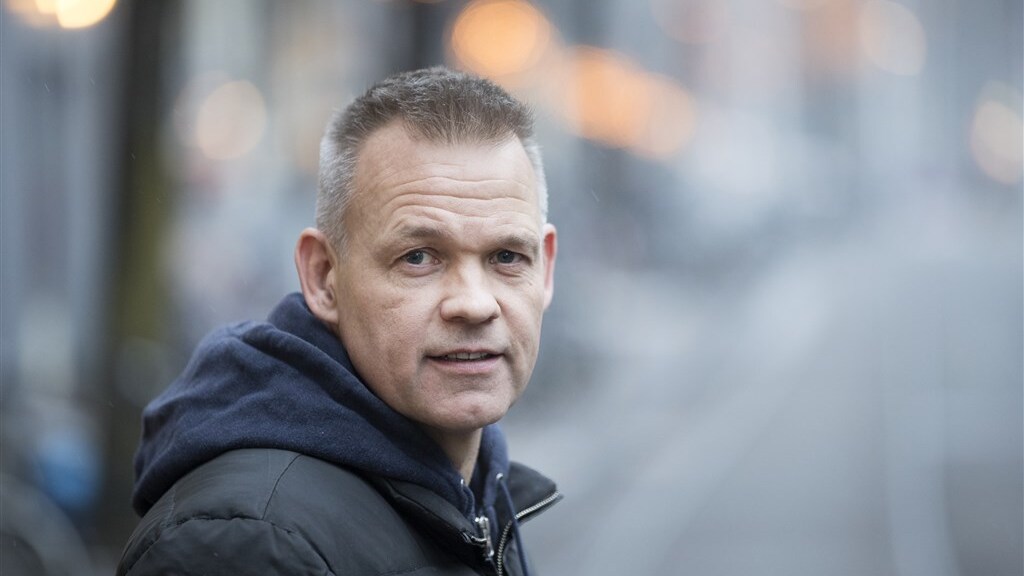'The divide is widening'
The electorate has spoken: five conclusions about the election results
1 hour 43 minutes ago
Political scientist André Krouwel
After a night and a day of counting votes, the election results are pretty much clear. What stands out? We asked political scientist André Krouwel, associate professor at the Vrije Universiteit and founder of the Kieskompas. These are five things we can conclude.
1. The current government policy is not punished
The Rutte III cabinet, consisting of VVD, CDA, D66 and ChristenUnie, had 76 seats when it took office. The departure of VVD MP Wybren van Haga in October 2019 made it 75. Two months ago the full cabinet resigned because of the benefits scandal. Yet the voter keeps faith in the government, if you look at the preliminary results of the elections:
The VVD grows from 32 seats to 35 seats.
D66 gains five and goes from 19 to 24 seats.
The CDA loses four seats and goes from 19 to 15.
ChristenUnie remains stable: once again it ends up with 5 seats.
Taken together, the most recent cabinet ends up with 79 seats, three more than in 2017.
"Two of the four parties have been rewarded," says political scientist Andre Krouwel. "The liberal flotilla. The Christian bloc has been punished. This is partly due to Prime Minister Rutte himself, who has been in the picture a lot in press conferences, explaining how he is going to solve things. For the difficulties, he referred to Minister De Jonge. Our 'teflon prime minister' let the problems slide away off him."
The cabinet was not punished, Krouwel argues. "But one party has been, the CDA. They will start to reconsider. If the CDA no longer wants to govern, Rutte will have a problem. Because then who will do it? CDA leader Hoekstra is a key figure for the manageability of this country."
2. The right is advancing
Two parties that are considered to be on the left have been hit hard. The SP went from 14 to 9 seats, GroenLinks from 14 to 7. The PvdA remained stable with 9 seats, the Party for the Animals went from 5 to 6 seats. Finally, BIJ1, which presents itself primarily by putting racism on the agenda, obtains one seat in the House.
On the other hand, there is considerable growth among right-wing populist parties. While PVV drops from 20 to 17, Forum voor Democratie (FvD) rises from 2 to 8 seats and the new party JA21 enters the House with four seats. Together, these parties add up to 29 seats, seven more than in 2017.
André Krouwel calls the right-wing parties the big winners of this election. "The explanation is, that there was a high turnout. People who are against the corona measures have been mobilized. In the case of Forum for Democracy, these are probably many young people. FvD leader Baudet pitched everything on corona and made big gains as a result."
With 29 seats added up, they represent 20 percent of the voters, but does that help anyone? Krouwel does not expect any of these parties to enter a government.
3. The divide between city and countryside is growing
This election result makes it clear to Krouwel that two types of Netherlands are emerging. "They don't understand each other very well anymore. Twenty percent of the population no longer trusts the system. There is a huge gap between the city and the countryside, and that is not good. It used to be the CDA and PvdA that brought people together, who could connect groups."
Christian parties and social democratic people's parties are losing ground. "We are going to regret that. We need parties that can bind voters for decades. Parties have to be embedded in society. That's the only way we're going to solve the problems, so this is not a positive prospect. Rutte is a manager, he is good at that, but the train is moving and we have lost some carriages. It's rattling tremendously at the rear."
4. The political landscape is splintering
The political landscape has not been so fragmented in a long time. Four new parties are joining: JA21, Volt, Bij1 and the BoerBurgerBeweging. In total there will be 17 parties in the Lower House. That is the same number as in the record year of 1918 when universal suffrage was first introduced.
There were ten newcomers in this year. Four years later they disappeared again, after a number of party mergers.
The Netherlands has a system where this is possible, Krouwel explains. "There is no electoral threshold and the whole country is one electoral district. For one seat, you need 0.67 percent of the vote. That's not very much."
Even now, it appears that the Netherlands "likes" all these new parties. "There is a huge growth of all kinds of parties trying, but most of them disappear again. A handful of parties become very small."
5. Politics is thriving: turnout is higher than in 2017 despite corona
According to an exit poll by Ipsos commissioned by the NOS, the turnout in the elections will be 82.6 percent. This would make it the highest turnout since 1986, when almost 86 percent of those entitled to vote showed up.
Krouwel was nevertheless somewhat surprised by the high turnout. "There is no evidence for it yet, but it seems that a kind of 'mobilization effect' has been created, especially by Forum [voor Democratie] and D66. That people really think: it is important that I participate. The possible explanation is that the corona crisis has been politicized in every possible way. 20 percent drop out and are angry and 80 percent say, we will continue with these parties."
Translated with
www.DeepL.com/Translator (free version)



